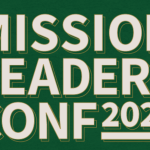 Here’s a guy wondering where is the best school or program for learning Modern Standard Arabic. I’ve heard of several schools — Kelsey, GAP, and others. Did you or someone you know participate in such a program? If so, would you be willing to offer an assessment? What might be the strengths/weaknesses of each program, and if possible, please provide contact info. Note that these don’t have to be operated by any particular “cause”. In other words, he’ll consider university programs, institutes, government run programs, private schools, etc. He says thanks in advance. Please click “Comment” below and share your ideas. You can even do so anonymously.
Here’s a guy wondering where is the best school or program for learning Modern Standard Arabic. I’ve heard of several schools — Kelsey, GAP, and others. Did you or someone you know participate in such a program? If so, would you be willing to offer an assessment? What might be the strengths/weaknesses of each program, and if possible, please provide contact info. Note that these don’t have to be operated by any particular “cause”. In other words, he’ll consider university programs, institutes, government run programs, private schools, etc. He says thanks in advance. Please click “Comment” below and share your ideas. You can even do so anonymously.












i know of a place in yemen. does it have to be in the u.s.?
It might actually work better if it’s *not* in the USA.
Modern Standard Arabic can be learned in many universities. It is easy to find courses in modern standard as well as classical Arabic. In reality there are three levels of Arabic language. The first is colloquial or the local language. The Kelsey school in Jordan teaches the local dialects (Jordanian and Palestinian). The advanced classes move on to Modern Standard, and they touch on classical.
The GAP school to my best knowledge does the same in the UAE but they start with colloquial Gulf Arabic.
If you are ONLY interested in Modern Standard (TV, radio and newspaper) language, you can get this at most universities. This is quite standard over the whole Arab world, although there are some pronunciation differences. The vocab is much the same. There are a number of universities that offer classical Arabic. This is the equivalent of studying Shakespearean English. There are lots of great old books written in classical, including the Qur’an, the Hadiths etc. If you are going to study history you need to have a grasp of classical. So check carefully before enrolling in a class.
There is a program run by a woman who used to run the Defense Lang. Inst. program in Monterey. Her new(er) program is in El Cajon, CA, outside of San Diego. It is excellent and I know at least one person who’d done it. (it was his 2nd lang).
The problem with the Kelsey program is that it teaches Christian vocabulary, which Muslim’s don’t use. So be sure what you are looking for and what you are planning to do.
I’ve heard many good things about the Arabic Language Institute in Fez, Morocco. Check it out at http://www.languagesabroad.com/countries/fez.html
And when you get this one answered, does anybody know of any qualified (Christian) Arabic teacher who would like to donate however many months it would take to teach Koran-readable Arabic to workers in China?
This is a “second” to Anonymous’ response – Modern Standard Arabic is not the “heart” language of any local people. It would be helpful in reading a newspaper or understanding a TV program.
If this person is headed to a specific area, and their focus is in sharing with the local population, their best bet is to get training in how to learn language and learn it from the locals.
The problem with learning Modern Standard first is that you will retain that accent (without even knowing you have an accent!) and always “sound” a bit stilted.
The approach Kelsey takes is best – local dialect first, Modern, then come classical. However, if you go to Kelsey, you may come out speaking with the accent of a Palestinian woman (as an example – not as an insult), but if you are heading to a different country and are a man, this may not be of benefit to you.
Often, we assume all Arabic is Arabic, but it’s important to realize that the “every day” vocabulary changes dramatically from people group to people group. In fact, my friends in Lebanon found it almost impossible to understand my friend from Morocco’s Arabic!
I just found this discussion and find it quite interesting. We at Kelsey definitely specialize in the colloquial dialect, and then get into more MSA and classical later. I think we do a good job teaching MSA of print media but we don’t really teach how to speak it, as very few people speak in MSA. There are probably places that do that better if that is what one wants.
I find intriguing the idea that there is a big difference between Christian and Muslim vocabulary. I was told this by people, but my experience has been otherwise. There may be expressions that Christians use and Muslims understand but don’t use, and vice versa. We teach both. Maybe it’s different in other lands, but here almost everything is mutually understood.
I always push my male students to find men to speak with, imitate their speech, etc. This helps to overcome the “speaking like a Palestinian woman” possibility.
Mark LaChonce
Director, Kelsey Arabic Program